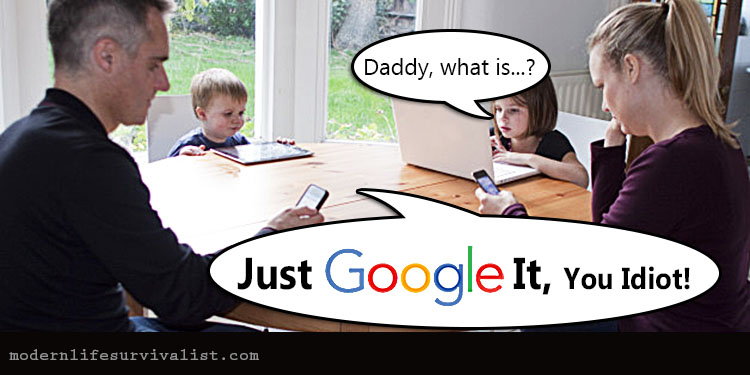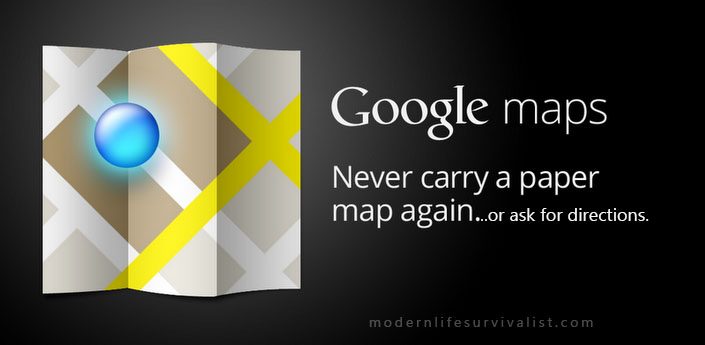
It goes without saying that we live in an age of convenience and quick answers. Each of us has more knowledge at our fingertips through the Internet than the majority of individuals who’ve ever lived on the planet. People used to ascend high mountains in search of answers from gurus in their remote mountain abodes, harboring secret knowledge to impart to anyone who might brave the journey to their summit. Google in particular seems to have supplanted this mythic role and indeed the need for any and all consultation with those of experience—an activity that used to comprise the majority of higher communication between humans.
Is this for the best? Is talk as cheap and arbitrary as they say, and we should just “plug in” to get the digitized prepackaged answers we seek? Or is something being lost in the translation?
Where there is no counsel, the people fall;
But in the multitude of counselors there is safety. –Proverbs 11:14
Often, after a great deal of searching on the Internet for something I’m desperate to find out, I get the answer I was looking for just by asking around by word of mouth (the old-fashioned way). This has happened so often, in fact, that I’ve taken to always first asking someone in my vicinity that I know might have the answer, or even calling someone to get an answer, before turning to Google. To some, this apparently qualifies me as a pest, and even a troll.
When Applied to Health
Remedy-oriented medicine is on its way back in.
Experience trumps all. Just as a neighbor might go next door in ’50s America to ask their neighbor for a cup of sugar, you can be sure they also might ask for a remedy for bruised shins, an ingrown toenail, or a rash. Just as quickly as they’d rustle up the sweet stuff, they’d grab the heating pad, the gauze, or the aloe.
And in a way, Google has begun to fill this role, because in the vast pages and algorithms of its indexing, it has managed to link you up with some pretty good answers.
But still, there is nothing like talking to someone you know, who lives in the same house, neighborhood, or region as you. We all live in our own different local ecosystem, with different factors of convenience that all come into play when problem-solving for life’s challenges. Some of the infinite factors that come into play when asking questions about health, are:
- flora and fauna (especially mold)
- weather patterns
- humidity
- pollen and other allergens
- water sources
- sources of pollutants (industrial, agricultural, commercial)
- local food sources
- modern amenities like stores, gas stations, local government, pharmacies, and hospitals
- roads
- financial considerations and resources
All of this information is unconsciously being considered and applied when you consult with people who live in your immediate vicinity. Let me also mention that if you ask a relative a question about health, you will immediately have more actionable intel based on their biological similarity to you, having the same genetics (for most) and more importantly having (most likely) very similar gut flora. What has worked for someone in your own family is very likely going to be effective for you.
Dr. Google and Dr. Facebook
Sometimes, though, when things don’t work or what your counselor says is something you feel hasn’t worked in the past, it is completely appropriate to turn to Google for a look at a broader database. This is undeniably useful, and this is where we can rejoice in the wonders of modern technology. Just make sure you use a wired connection, not your smart phone or a laptop connected to wireless.
I am particularly impressed with the advent of health forums, and specifically Facebook forums, where you can quickly get answers from individuals who have the same condition as you. My favorite is EI Safe Housing, an MCS-related support group where I go to get quick answers about scent-free and healthy materials for my home maintenance, clothing, cleaning, hygiene, and bedding needs. Rachel’s favorites are the Breastfeeding and Baby Wearing Crunchy Support #BBCS and the Natural Baby Mama Non-Toxic Community. Going to a forum is often better than waiting for answers from your Primary Care Physician (PCP). Your family doctor has but one vantage point based on whatever schooling they had decades ago, combined with the dubious proposition of their having kept up with all medical journals, which in turn can be quite inaccurate. PCPs also unfortunately are trying to prescribe a drug as the main point of their visit. They get pretty ancy when someone just consults with them and gets a check-up on a sick visit.
So a good procedure to follow when determining a solution for your minor/chronic/non-life-threatening health issue is to:
- Ascertain the problem through observation and slight self-experimentation
- Contemplate or pray and consult with your significant other if you have one
- Determine if the solution is simple or complex. Is the answer obviously a quick Google away?
- Even if it is, if someone’s nearby, it can’t hurt to ask—your excuse when they tell you to “just google it!” can be: “I was just making conversation.” Ironically, if you ask a stranger a “stupid” question, they will be more polite than your own family and will try to answer the question. It’s almost as if they’re enjoying the change of pace you’ve added to their day. Who knew?
- If parents and other relatives are available, ask their advice
- Consult with friends/family/neighbors who may know something on the topic
- Evaluate the answers you get. Decide if you want to try it.
- (Optional) Proceed with caution. Try what they suggest, and do it correctly and as thoroughly as you feel comfortable. Sometimes, you do need to get your feet wet before jumping in, though.
- Whether you tried their suggestion or not, you might need to do further research. This is where Google and forums are useful.
- Ask yourself: Do I need to pay for consultation? This is the last resort of course. If so, proceed with caution.
There are many considerations that might throw any of these steps out of order, but this is how we should be approaching simple problem-solving as humans. To avoid losing touch with reality, it’s wise to stay grounded in these tried-and-true avenues of information seeking. And though we’ve lost touch with traditional practices that homogenize us in alignment with our tribe, keeping us from experiencing the bewildering difficulties modern life affords, there is some consolation in the convenience of Google when we find ourselves truly stumped. But be aware that in such a vast landscape as the Web, true discernment is extremely difficult. Always hone your intuition through prayer, reading of the Word (and other books), and good counsel.
This procedure could easily apply to any issue, including business pursuits, relationship issues, money problems, and opinions. Maintaining these lines of communication with people who love and care about you will help to keep the human race strong and thriving. Once we lose this type of connection through the simple communication of inquiry, we will suddenly find ourselves ungrounded and weakened as a species. Perhaps we’ll even find ourselves plugged into these machines we’ve begun to rely on, unable to unplug at all!
A Metaphor: Asking for Directions

Just for the record, I prefer Mapquest over Google Maps. The latter has literally had me driving around in circles on numerous occasions. We always use web-based map programs and print out directions before traveling to avoid exposure to harmful EMFs from a GPS (which has an immediate effect on my gut and is very harmful to small children).
One arena where people should readily defer to real people is travel. My own father regularly rolls his eyes when I ask him for the fastest way to get somewhere, and sometimes grumbles, “C’mon Rob! You know how to use Google don’t you?”
There is even a website that legitimizes this flippant response with an automated “rick-roll” of sorts. It furthers the ridicule being propagated by our progressively lazy society even in its name, mockingly dubbed “Let Me Google that for You” (LMGTFY). The most appropriate use for dropping an LMGTFY link is on a forum when you’re looking for answers, and the answer is more “encyclopedic” in nature. The “pesky” inquisitor is essentially asking the poor victims on the forum to perform a simple google search for them, so their punishment is to have this site thrown at them, simultaneously answering their question and trolling them.
However, I ask my Dad (whose already on the way there might I add and has been down that way several times) the quickest way to get down to the Smoky Mountains from Maryland. Considering all factors that could come into play on such a significant road trip, specifically knowing he’s got an hour head start on me, it makes perfect sense to consult on the optimal route. Yet after our conversation concludes, he forgets to hang up, and I hear him start to grumble to my brother and Mom about the frivolous interrogation about directions.
This frankly pisses me off.
GPS’s often malfunction, might I add, and oblivious tech addicts die. I think in this clip from the Office, Michael Scott proves my point, in his own hard-headed way:
I recently laid it out for my Dad when he got irritated and told my wife to Google something health-related she had consulted with my Mom about. I basically let him know it was a subhuman cop-out to say that to someone you love when they’re just making casual observations. Completely unnecessary.
So, let me give it to you straight: Face-to-face communication is always more efficient for finding the best solutions to problems we humans experience. Don’t let anyone tell you otherwise—not even Google.
